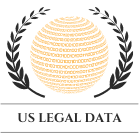Introduction
Last Friday, on May 5, I had the privilege of attending the Maryland Association for Justice (MAJ) Conference, where I was given the opportunity to speak to a room full of legal professionals about a new era of law practice. As the founder of US Legal Data, I presented the benefits of using data tracking and machine learning to augment their practice, improve case outcomes, and enhance their competitiveness in the legal arena.
Observations
There were four surprising revelations that emerged from my interactions with these legal professionals:
- Lawyers are generally not tracking their data.
- Lawyers are not yet actively sharing data.
- The use of machine learning is still a largely untouched territory in law practices.
- Many attorneys initially struggled to grasp how data tracking and machine learning could enrich their practice.
Yet, despite the novelty of these concepts in the legal profession, the lawyers present in the conference were highly engaged throughout my presentation and were intrigued by the potential of these technologies.
Key Interactions
One attorney questioned how tracking juror demographic information could be of any use. It was a fair question and one that sparked a fascinating discussion about the unrecognized potential of data in the legal profession. By tracking juror demographics, attorneys can begin to identify patterns and correlations that could potentially influence trial outcomes. Such insights could be leveraged during jury selection, case planning, and even settlement negotiations.
A representative from a physical therapy provider was intrigued by the data that US Legal Data could provide concerning case values related to specific providers. The realization that such data could influence the trajectory of personal injury cases and better inform their strategies was a clear “lightbulb moment” for many.
After the presentation, several firms signed up and expressed their intent to begin utilizing the platform. It was heartening to see legal professionals recognizing the value of tracking and sharing data, and the impact it could have on their practice.
Conclusion
The applause that echoed in the ballroom post-presentation was a testament to the legal profession’s readiness to embrace this new age of data and machine learning. The MAJ Conference was an affirmation that while lawyers may not be fully utilizing these resources yet, there is a burgeoning curiosity and willingness to explore.
In the coming era, the legal profession won’t just be about winning arguments; it’ll be about asking the right questions and leveraging data to find the answers. It’s about unlocking the potential that lies in the numbers and the patterns, and transforming the legal profession into a data-driven industry.
With platforms like US Legal Data, we are just at the dawn of this transformation. The future of law is data-driven, and it’s a future that I’m excited to be a part of.
